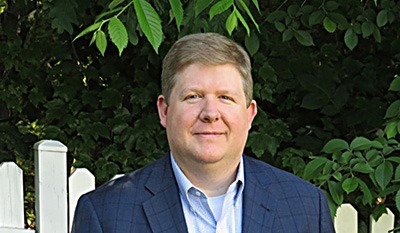This article first appeared on the Magnolia Tribune.

- Medicaid expansion would make people earning between 100-138 percent of the Federal Poverty Level ineligible for private health plans on the ACA exchange, forcing them off those plans and onto Medicaid.
When most people think of Medicaid expansion, they think about people without existing insurance obtaining coverage. But a sizable portion of the Medicaid expansion population in any state comes from people who lose private health insurance because of the expansion, itself.
These are not people who voluntarily drop private health insurance. Instead, most of the people in this category are forced off of their private health insurance, either because they are no longer eligible for the ACA exchange or because their small business employer discontinues offering insurance.
Some 140,000 people in Mississippi who currently have private health plans through the ACA exchange would be forced off those plans and onto Medicaid were expansion to pass and the Governor’s likely veto be overridden.
Under the ACA exchange, people who do not have an affordable alternative for health insurance can purchase private health plans. Those plans are subsidized on a sliding scale up to 400 percent of the Federal Poverty Level (FPL).
People earning between 100-150 percent of the FPL in non-expansion states currently have access to plans with premiums that are fully subsidized, along with cost sharing reductions that bring down any out of pocket expenses for deductibles and copays by 98 percent.
To put that into perspective, a person earning minimum wage at a full time job currently eclipses 100 percent of the FPL and would qualify for a fully subsidized private plan on the ACA exchange. Approximately 2 percent of Mississippi workers earn only minimum wage.
Medicaid expansion would raise the income eligibility threshold for the welfare program to 138 percent of the FPL. As a result, anyone earning between 100-138 percent of the FPL would become ineligible for the ACA exchange and would be shifted to Medicaid.
The Center for Medicare and Medicaid Services (CMS) reports that in 2023, 101,822 Mississippians earning between 100-138 percent of the FPL were enrolled in a private plan through the ACA exchange. New data from CMS shared with Magnolia Tribune shows that number jumped to just under 140,000 people for 2024.
Of course, that 140,000 number does not reflect people who are currently eligible to enroll in an ACA exchange plan, but have elected not to within the 100-138 percent of FPL income range. It also does not reflect the tendency of small businesses with lower income employees to drop employer provided plans as a cost savings measure once employees become eligible for Medicaid.
When those categories of people are factored in, the number of people forced from the private insurance market is likely to be far higher than 140,000 in Mississippi.
If the goal is to provide the working poor with access to health insurance, they already have that access through the ACA exchange. There’s no reason to rush to move those people onto Medicaid.
If the goal is to provide people who refuse to work, or who refuse to work full-time, with health insurance, the Legislature would be far better off focusing its energy on the “donut hole” in coverage for adults. That donut hole is the gap between current Medicaid eligibility and current eligibility for the ACA exchange. The Kaiser Family Foundation estimates there are 88,000 people in that gap, including 38,000 people who do some work.
This article first appeared on the Magnolia Tribune and is republished here under a Creative Commons license.
Read original article by clicking here.

